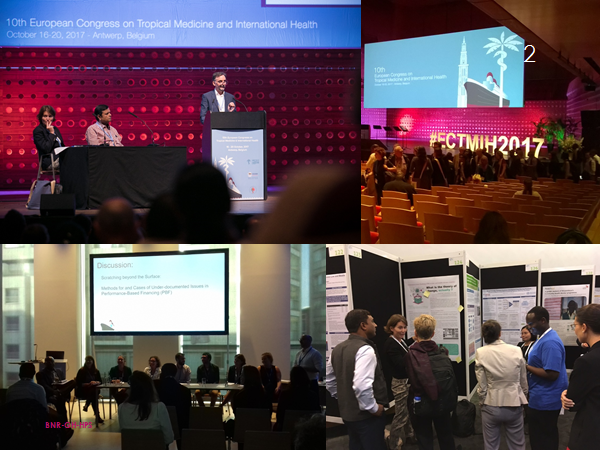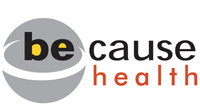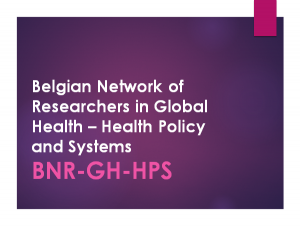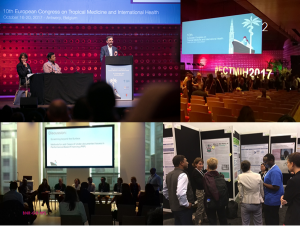
Convene, peer exchange, mutual understanding and trust building amongst researchers contributes to the quality and visibility of research in Global Health – Health Policy and Systems. The different universities, research institutes, organisations and think tanks in North and South of Belgium count many academics and researchers from various disciplines (medical science, public health, health economics, socio-anthropology, political science, law, psychology, etc.) working on global health (GH) issues and Health Policy and Systems Research (HPSR).
The overall objective of setting-up a Belgian Network of Researchers in Global Health is to contribute to the quality and visibility of GH & HPSR research performed by Belgian actors. Its specific objectives are to:
- Document who is doing what and where in order to improve the knowledge of each other’s work and competences;
- Foster learning amongst researchers by peer exchange on research methods, network events and/or workshops;
- Foster scientific collaborations between researchers, peer exchange/informing on ongoing and new potential research;
- Increase the visibility of GH&HPSR products by Belgian actors, articles and/or research reports made available via a mailing list or newsletter/update.
Read more in the terms of references from the Belgian Network of Researchers in Global Health:
BcH_Proposal for a network of Belgian researchers in global health and HPSR
 MORE
MORE



